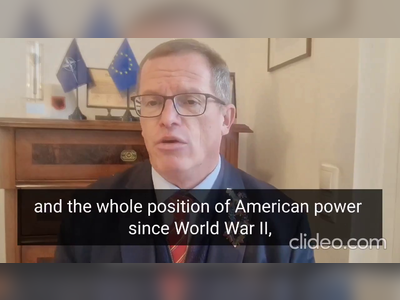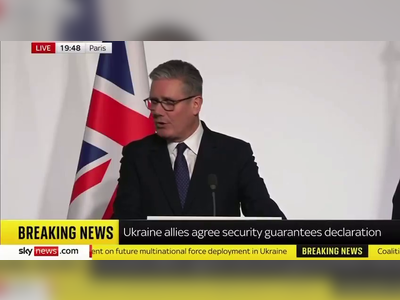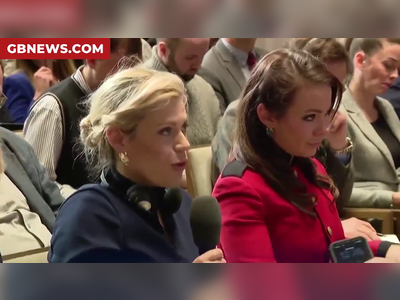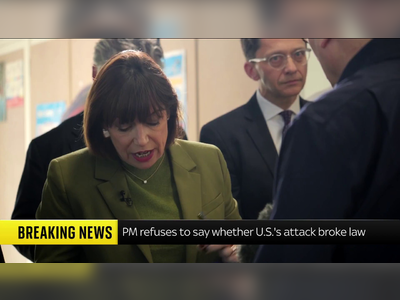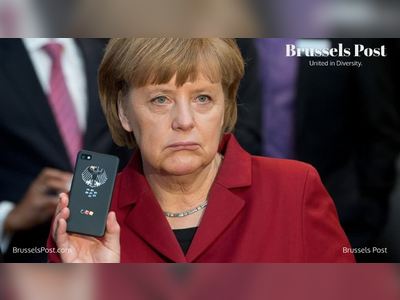European Central Bank Faces New Challenges Amid Heightened Global Uncertainty
Christine Lagarde outlines key monetary policy considerations at ECB and its Watchers Conference in Frankfurt.
On March 12, 2025, Christine Lagarde, President of the European Central Bank (ECB), delivered a speech at the 25th ECB and its Watchers Conference in Frankfurt, addressing significant shifts in the economic landscape that pose challenges for monetary policy.
Lagarde referenced the unpredictability of current times, stating that expectations have been dramatically upended over recent years, particularly highlighting a surge in trade policy uncertainty which currently sits at an index level of nearly 350, notably above the average values reported since 2021. Furthermore, geopolitical risk indicators are reportedly at levels unseen since the Cold War, underscoring the extraordinary challenges faced by policymakers.
Lagarde emphasized the need for the ECB to deliver price stability amidst this turbulent environment.
She highlighted three primary changes affecting the economic context.
First, the predictability of shocks is diminishing as new factors linked to trade, defense, and climate change create a mixed landscape for inflation.
While historical trends indicated consistent disinflationary forces, current dynamics show potential for rising inflation due to trade fragmentation and increased defense expenditure, potentially at odds with other economic pressures such as declining demand in response to tariffs.
Second, the magnitude of shocks to inflation is evolving.
Lagarde noted that past significant downturns from the financial crisis did not yield immediate inflationary impacts.
In contrast, future shocks, particularly to the euro area, may lead to rapid inflationary responses, reflecting the high degree of openness to trade and vulnerability to external supply chain disruptions.
Third, if shocks intensify, Lagarde warned that inflation could become more persistent.
Evidence suggests that recent inflation trends are marked by quicker price changes, thereby complicating the ECB's ability to stabilize inflation expectations.
Specific instances of energy price surges, alongside slower adjustments in wages, are cited as examples of this phenomenon.
Lagarde affirmed the importance of a symmetric inflation target set at 2%.
This framework aims to guide expectations and ensure that monetary policy consistently progresses toward meeting the target.
However, she acknowledged that achieving the target will not guarantee that headline inflation will always remain at 2%, particularly in a complex economic landscape.
Lagarde addressed the ECB's response function, characterized as state-dependent – responding variably to differing types of economic shocks.
The ECB has historically reacted more forcefully to demand-related shocks rather than supply shocks, except in situations where persistent supply shocks coincide with high inflation rates.
The implications of these shifts necessitate a robust anchoring of inflation expectations to maintain credibility in policy responses.
In light of a new approach required by current challenges, the ECB is adapting its policy communication strategies.
Lagarde emphasized that forward guidance on interest rates, while beneficial under certain straightforward economic conditions, may be less effective amidst rising uncertainty.
Acknowledging lessons learned from past guidance, Lagarde indicated that when confronted with unpredictable shock distributions, the ECB would prioritize clarity about its policy reaction functions over specific rate path commitments.
To foster public understanding, the ECB is increasing its reliance on scenario analysis to navigate the complexities of upcoming monetary policy decisions.
Lagarde outlined three key data considerations driving policy decisions: inflation outlooks, dynamics of underlying inflation, and the efficacy of monetary policy transmission.
This strategic shift aims to adaptively respond to the volatile economic climate while maintaining a focus on inflationary goals.
Despite the myriad of uncertainties, the ECB's overarching monetary framework remains dedicated to price stability and aims to clarify its reaction mechanisms.
Monitoring inflation expectations will remain pivotal as the institution navigates this challenging economic landscape.
Lagarde referenced the unpredictability of current times, stating that expectations have been dramatically upended over recent years, particularly highlighting a surge in trade policy uncertainty which currently sits at an index level of nearly 350, notably above the average values reported since 2021. Furthermore, geopolitical risk indicators are reportedly at levels unseen since the Cold War, underscoring the extraordinary challenges faced by policymakers.
Lagarde emphasized the need for the ECB to deliver price stability amidst this turbulent environment.
She highlighted three primary changes affecting the economic context.
First, the predictability of shocks is diminishing as new factors linked to trade, defense, and climate change create a mixed landscape for inflation.
While historical trends indicated consistent disinflationary forces, current dynamics show potential for rising inflation due to trade fragmentation and increased defense expenditure, potentially at odds with other economic pressures such as declining demand in response to tariffs.
Second, the magnitude of shocks to inflation is evolving.
Lagarde noted that past significant downturns from the financial crisis did not yield immediate inflationary impacts.
In contrast, future shocks, particularly to the euro area, may lead to rapid inflationary responses, reflecting the high degree of openness to trade and vulnerability to external supply chain disruptions.
Third, if shocks intensify, Lagarde warned that inflation could become more persistent.
Evidence suggests that recent inflation trends are marked by quicker price changes, thereby complicating the ECB's ability to stabilize inflation expectations.
Specific instances of energy price surges, alongside slower adjustments in wages, are cited as examples of this phenomenon.
Lagarde affirmed the importance of a symmetric inflation target set at 2%.
This framework aims to guide expectations and ensure that monetary policy consistently progresses toward meeting the target.
However, she acknowledged that achieving the target will not guarantee that headline inflation will always remain at 2%, particularly in a complex economic landscape.
Lagarde addressed the ECB's response function, characterized as state-dependent – responding variably to differing types of economic shocks.
The ECB has historically reacted more forcefully to demand-related shocks rather than supply shocks, except in situations where persistent supply shocks coincide with high inflation rates.
The implications of these shifts necessitate a robust anchoring of inflation expectations to maintain credibility in policy responses.
In light of a new approach required by current challenges, the ECB is adapting its policy communication strategies.
Lagarde emphasized that forward guidance on interest rates, while beneficial under certain straightforward economic conditions, may be less effective amidst rising uncertainty.
Acknowledging lessons learned from past guidance, Lagarde indicated that when confronted with unpredictable shock distributions, the ECB would prioritize clarity about its policy reaction functions over specific rate path commitments.
To foster public understanding, the ECB is increasing its reliance on scenario analysis to navigate the complexities of upcoming monetary policy decisions.
Lagarde outlined three key data considerations driving policy decisions: inflation outlooks, dynamics of underlying inflation, and the efficacy of monetary policy transmission.
This strategic shift aims to adaptively respond to the volatile economic climate while maintaining a focus on inflationary goals.
Despite the myriad of uncertainties, the ECB's overarching monetary framework remains dedicated to price stability and aims to clarify its reaction mechanisms.
Monitoring inflation expectations will remain pivotal as the institution navigates this challenging economic landscape.
AI Disclaimer: An advanced artificial intelligence (AI) system generated the content of this page on its own. This innovative technology conducts extensive research from a variety of reliable sources, performs rigorous fact-checking and verification, cleans up and balances biased or manipulated content, and presents a minimal factual summary that is just enough yet essential for you to function as an informed and educated citizen. Please keep in mind, however, that this system is an evolving technology, and as a result, the article may contain accidental inaccuracies or errors. We urge you to help us improve our site by reporting any inaccuracies you find using the "Contact Us" link at the bottom of this page. Your helpful feedback helps us improve our system and deliver more precise content. When you find an article of interest here, please look for the full and extensive coverage of this topic in traditional news sources, as they are written by professional journalists that we try to support, not replace. We appreciate your understanding and assistance.


